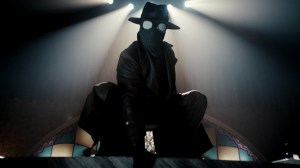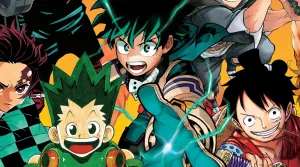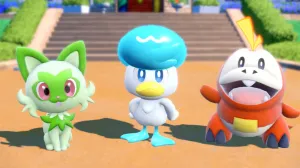
Regardless of whether you loved or hated the series finale of Lost, it’s hard to deny the power of the symmetry of a show that started and ended with a shot of Matthew Fox’s Jack laying on the ground with a dog by his side, with series co-creator Damon Lindelof recently noting that it was decided very early on that this is how the show would conclude. The big challenge, however, was finding the right path to get our characters to this point in time, especially when passionate fans of the series conjured their own theories to explain the show’s many mysteries, with many of those theories being fulfilled.
Videos by ComicBook.com
“We knew a bunch of things [early on]. One of the things that we knew for a very long time was that the series was gonna end with Jack’s death,” Lindelof shared with Collider. “That would be the end of his arc… the symmetry of starting with his eye opening and ending with his eye closing felt really good to us. But then, because Lost was a show that really reveled in non-linear storytelling and liked to jump around in time, we started to become very enamored of the idea that, although the final image of the final season would be Jack’s eye closing, we could show his entire experience post-death in some way, Trojan-horsed inside the show, and how could we hide it? How could we give the audience what we felt the audience had been demanding from the pilot, which is, ‘Is this purgatory? Are they all dead?’ Because when someone asks you a question, I believe — because this is how it is with me — they’re really telling you what they want.”
While Game of Thrones might have been the dominating TV series of the past decade, earning massive amounts of speculation about how the series would conclude and ultimately delivering a divisive conclusion, Lost underwent a similar ordeal years earlier.
The show launched in 2004 and offered audiences a variety of mysterious story elements, with social media platforms starting to gain popularity alongside the series’ mysteries deepening, allowing fans from around the world to come together to discuss all of the narrative’s many clues. Unlike Game of Thrones, Lost wasn’t based on any preexisting stories, leaving audiences completely in the dark about what events could unfold.
As Lost‘s narratives grew more complex and its following grew more passionate, it faced the unenviable task of answering some of its biggest questions, in hopes of satiating not only audiences, but also in ways that would authentically honor the series and its creators. In some regards, it’s the show’s own popularity that is to blame for the number of questions it posed, as Lindelof recently pointed out that he only saw the narrative lasting three seasons, despite ABC thinking the series’ popularity meant it needed to continue in perpetuity, ultimately ending with Season Six in 2010.
Lindelof has previously stated that, while he might no longer be interested in the series, he’s open to other creatives exploring the mythology he helped create.
What do you think of Lindelof’s remarks? Let us know in the comments below!








